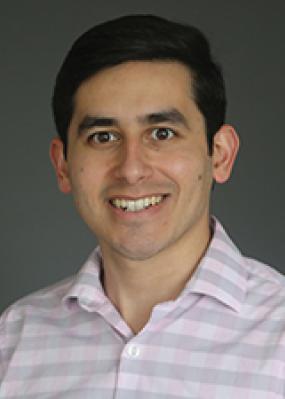Urban planning postdoc provides insights to local communities

Hsi-Chuan Wang | Postdoctoral Researcher | School of Public Affairs & Administration
For Hsi-Chuan Wang, the minutiae and the big picture go hand in hand.
Wang is a postdoctoral researcher in KU’s School of Public Affairs & Administration. He earned his bachelor’s and master’s degrees in urban planning from National Cheng Kung University in Taiwan. After a few years working for the urban development bureau of the Kaohsiung city government, he pursued a doctorate from Washington University in St. Louis.
“In cities, that kind of sense of traveling, being adventurous, is always something on my mind. Planning as a discipline takes so much regulatory effort - we are talking about the zoning, land use, commercial area, residential area, so as the consideration regarding spaces of public and private sectors; these discussions interest me,” Wang said. “How does a space become more meaningful to anyone? Why is Mass Street meaningful in Lawrence? That kind of idea is interesting to me.”
At Washington University, Wang researched international development in South Africa and Ghana. These countries had taken loans from the World Bank to finance major infrastructure projects designed to spur economic growth, but there’s still disagreement as to the effectiveness of these projects. Wang wanted to see things from the perspectives of both the urban planners and the people living in these areas.
“We were specifically focused on informal settlements,” Wang said. “These are challenging environments that have issues with water, electricity provisions, and so on. How does the major infrastructure provision change their livelihood?”
Now he’s taking that same care for the concerns of residents and local officials alike and applying it to Kansas. Wang works on the Adaptive & Resilient Infrastructures Driven by Social Equity (ARISE) project, a National Science Foundation-funded collaboration between 17 higher education institutions in the state that seeks to help Kansas communities rebound faster and suffer less from large-scale natural disasters. Wang is interviewing emergency management professionals and other municipal staff to understand how they communicate before and after disasters. Learning best practices can improve responses to future disasters.
“The main mission is really about how we prepare for major disasters that might occur,” Wang said. “How do we make sure we don’t lose that much, and how do we ensure that we recover as fast as possible?”
Urban planners recognize that there are many types of communities with different needs. To account for this, the ARISE project looks at both urban and rural parts of the state.
“From the planning or urban studies perspective, it’s really about unleashing strategies in a larger scope — but sometimes something works in one place but not another,” Wang said. “Learning to appreciate the differences between places matters.”
The ARISE project provides education to students and communities. Faculty members and postdoctoral researchers work with undergraduate and graduate students to collect data and prepare reports. Kansas communities can see these reports and modify their emergency preparedness accordingly.
“The point is to be able to share some insights with these communities. Some of it will be useful for them, and some may not be,” Wang said. “But as long as some of that will be useful, I think that’s a good reward for us.”
